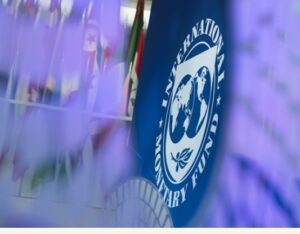IMF Urges Urgent Revision of Nigeria’s 2025 Budget to Prevent Economic Fallout
IMF Urges Urgent Revision of Nigeria’s 2025 Budget to Prevent Economic Fallout

The International Monetary Fund (IMF) has raised concerns over Nigeria’s 2025 fiscal plan, warning that without urgent revisions, the country could face escalating financial instability.
In its latest Article IV Consultation report released on Wednesday, the IMF highlighted growing risks to Nigeria’s fiscal sustainability, citing declining oil revenues, underwhelming production output, and difficulties in executing capital projects.
The report recommends that the Nigerian government reassess its budgetary assumptions and realign spending priorities to better reflect the country’s current economic landscape.
“Capturing the full benefits of fuel subsidy reforms could help stabilize public finances. If those savings, estimated at around 2% of GDP, are not realized in the second half of 2025—and with limited revenue expected from ongoing tax reforms—expenditure cuts, particularly in recurrent spending, may be necessary to protect growth-driven investments,” the IMF noted.
The warning comes as Nigeria faces the prospect of increasing reliance on the Central Bank’s Ways and Means facility to bridge revenue shortfalls—an unsustainable path, the IMF cautioned.
The 2025 federal budget, recently signed into law by President Bola Ahmed Tinubu, totals a record N54.99 trillion—Nigeria’s highest ever. The budget was revised upward from an initial N49.7 trillion proposal, projecting a deficit of N13.08 trillion to be financed through both domestic and foreign borrowing.
Key allocations include:
N13.64 trillion for recurrent expenditure
N23.96 trillion for capital projects
N14.32 trillion for debt servicing
N3.65 trillion in statutory transfers
The budget is based on projections including a crude oil benchmark of $75 per barrel, production levels of 2.06 million barrels per day, an exchange rate of N1,400 to the dollar, and a targeted inflation rate of 15%.
Despite strong revenue performance in 2024, the IMF and World Bank both view the 2025 fiscal targets as overly optimistic. Speaking during the launch of the World Bank’s Nigeria Development Update report, titled Building Momentum for Inclusive Growth, Lead Economist Alex Sienaert expressed doubt that Nigeria will be able to meet such ambitious revenue expectations.
“Even with recent gains in revenue, the targets set for 2025 are quite bold and may be difficult to achieve,” Sienaert said.
However, Minister of Budget and Economic Planning, Senator Abubakar Bagudu, countered the World Bank’s assessment, arguing that the budget is both realistic and necessary for national development.
“Our projections are not exaggerated,” Bagudu stated. “Even though oil prices have fluctuated, Nigeria’s average is higher due to our premium crude grades. Budgets must aim for growth and not be limited by short-term obstacles.”
As economic debate intensifies, experts warn that the government must balance ambition with pragmatism to avoid deepening fiscal stress in the year ahead.
TRENDING SONGS
 NPMA Appeals to Nigerian Government for Compensation After Lagos Market Fire
NPMA Appeals to Nigerian Government for Compensation After Lagos Market Fire
 Rest Every Four Hours, FRSC Issues Safety Guide for Fasting Motorists
Rest Every Four Hours, FRSC Issues Safety Guide for Fasting Motorists
 NNPC Boss Ojulari Bags UK Energy Institute Fellowship
NNPC Boss Ojulari Bags UK Energy Institute Fellowship
 Shock in Anambra: Bride Disappears Moments Before Wedding
Shock in Anambra: Bride Disappears Moments Before Wedding
 Nigerian Woman Returns ₦330 Million Accidentally Credited to Her Account
Nigerian Woman Returns ₦330 Million Accidentally Credited to Her Account
 APC Don Reach Morocco?’ VeryDarkMan Reacts to Seyi Tinubu Poster
APC Don Reach Morocco?’ VeryDarkMan Reacts to Seyi Tinubu Poster
 Bride Breaks Down in Tears as Wedding Meals Were Kept Secretly While Guests Go Home Hungry
Bride Breaks Down in Tears as Wedding Meals Were Kept Secretly While Guests Go Home Hungry
 Odogwu by Day, Robber by Night: How Marriage Joy Turned Into Tragedy
Odogwu by Day, Robber by Night: How Marriage Joy Turned Into Tragedy
 Nigerian Officials Allegedly Pocket N4–6B Weekly Through Smuggling Cartels at Seme–Badagry Border
Nigerian Officials Allegedly Pocket N4–6B Weekly Through Smuggling Cartels at Seme–Badagry Border
 Ahmad Yerima: Naval Officer to Face No Sanctions After Clash with Wike – Matawalle
Ahmad Yerima: Naval Officer to Face No Sanctions After Clash with Wike – Matawalle
Share this post with your friends on ![]()













